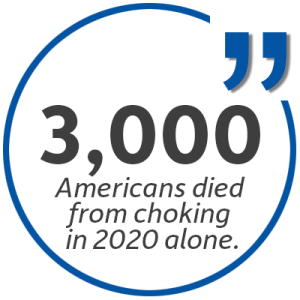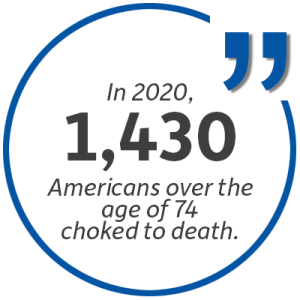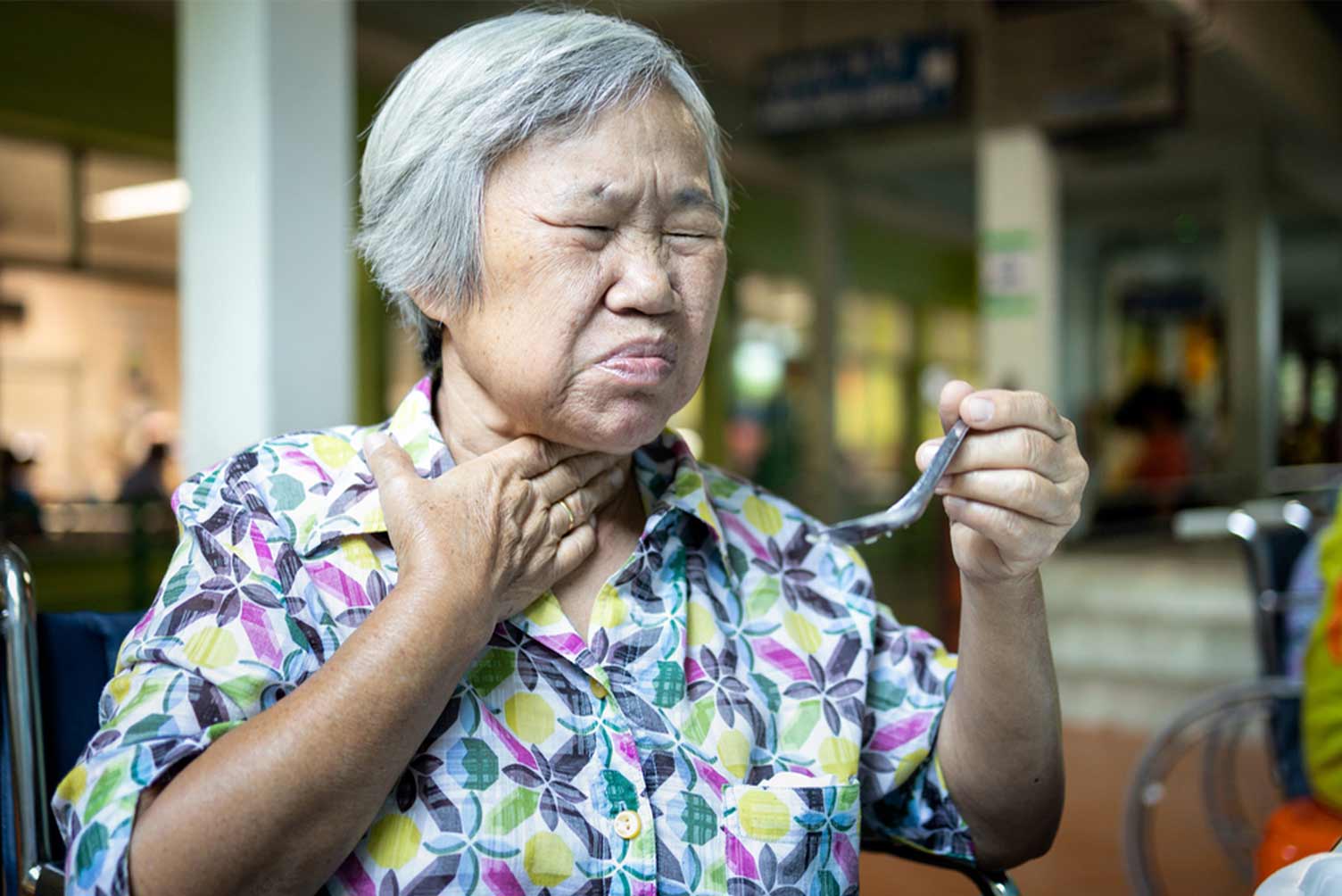Choking is a serious hazard that kills numerous individuals every year. In fact, choking is the fourth most common cause of death when it comes to personal injuries, and 3,000 Americans died from choking in 2020 alone.

While anyone can suffer from a choking accident, it’s far more common for elderly individuals. According to the National Safety Council, in 2020, 1,430 Americans over the age of 74 choked to death, meaning that almost half of those who died due to choking that year were elderly.
The reason why choking hazards are even more serious and common for older individuals is due to their declining physical and mental health. Elderly individuals often have a hard time swallowing their food, and many lack the cognition to realize when they haven’t chewed their food enough. This is even more accurate for those living in nursing homes, as these residents frequently suffer from physical or cognitive impairments that impact their ability to chew sufficiently.
While nursing homes have a responsibility to monitor their residents and help them if they have medical emergencies, such as the elderly choking on food, neglect is tragically common.
If your loved one suffered from a choking injury due to nursing home neglect, you need to contact a nursing home abuse attorney. That way, your family can hold the responsible party accountable and recover the money you deserve for damages.
Risk Factors of Elderly Choking Accidents
It’s common for elderly individuals to choke on their food because of many age-related conditions and factors.
Some of these include:
- Cognitive decline, such as Alzheimer’s disease and dementia
- Stroke-related impairments
- Trouble chewing with dentures
- Physical conditions, such as Parkinson’s disease and Lou Gehrig’s disease
- Medications that cause dry mouth and trouble swallowing
In addition to these conditions, poor food quality can increase the risk of elderly choking accidents. For instance, someone may choke if the food isn’t fully prepared or contains small bones.
Moreover, seniors often need assistance with cutting food. They may attempt to take oversized bites if the nursing home workers don’t help them with cutting, further increasing the risk of choking. If the nursing home staffers don’t monitor and help residents with their food, the seniors have a much greater likelihood of suffering serious or fatal choking injuries.
Signs of Choking in Elderly People
Choking typically occurs when a large or insufficiently chewed piece of food obstructs a victim’s airflow. This lack of oxygen causes irreparable brain damage within just three to four minutes, and the person will die if they don’t receive help.
If you care for elderly individuals while they eat, you need to be on the lookout for warning signs of choking.
These include:

- Coughing
- Wheezing
- Panic
- Gagging
- Inability to speak
- Confusion
- Gestures indicating that they’re choking, such as their hands over their throat
When a victim chokes, they’ll eventually become unconscious, and their face, fingernails, and lips will turn blue or gray due to oxygen depletion. If no one helps the victim by calling 911 or giving them the Heimlich maneuver, they will die.
How to Prevent Choking in Elderly People
Nursing homes need to be able to protect their residents, and this includes mitigating the risks of choking. These institutions should train their staff to be able to perform the Heimlich maneuver at a moment’s notice, and they need to ensure to monitor high-risk patients as they eat.
Workers should be aware of residents who may be more susceptible to choking. One major indicator that someone may choke in the future is dysphagia, meaning trouble swallowing.
Symptoms of dysphagia include:

- Drooling
- Heartburn
- Painful swallowing
- Regurgitating food
- Coughing
- The feeling of food being stuck in the throat
- Gagging or coughing when eating
Other warning signs of choking that may not directly relate to dysphagia are:
- History of choking
- Dehydration
- Vomiting
- Difficulty communicating
Additionally, nursing homes need to offer safe foods that will further reduce the risk of choking, and staffers should be willing to cut patients’ food for them.
Contact a Nursing Home Abuse and Neglect Attorney

The sad reality is that many nursing homes abuse and neglect their patients, leading to serious personal injuries and deaths. It’s the nursing home’s responsibility to keep its residents safe, and if someone suffers a serious affliction or dies due to a choking accident, it’s frequently due to neglect.
If you suspect that your loved one was the victim of nursing home abuse or neglect, you need to contact an attorney. Here at Crossen Law Firm, our nursing home neglect attorneys have years of experience assisting families with holding these institutions accountable. We can help you prove your abuse or neglect case and will work to maximize compensation for your family.
You can learn more by scheduling a free case review with our team. Call us today online or by calling 317-401-8626.

 317-401-8626
317-401-8626 
.jpg)